According to https://svn.python.org/projects/external/xz-5.0.3/doc/lzma-file-format.txt
The lzma header should look something like this 1.1. Header
+------------+----+----+----+----+--+--+--+--+--+--+--+--+
| Properties | Dictionary Size | Uncompressed Size |
+------------+----+----+----+----+--+--+--+--+--+--+--+--+
I tried to generate lzma file of a 16kb *.bin file by using:
1.) the lzma.exe given by 7z standard SDK (with -d23 argument, 2^23 dict size) and then
2.) tried to generate in python using following code
import lzma
fileName = "file_split0_test.bin"
testFileName = "file_split0_test.lzma"
lzma_machine = lzma.LZMACompressor(format=lzma.FORMAT_ALONE)
with open(fileName, "rb") as fileRead:
toWrite = b""
byteRead = fileRead.read()
data_out = lzma_machine.compress(byteRead)
#print(data_out.hex())
fs = open(testFileName, 'wb')
fs.write(data_out)
fs.close()
fileRead.close()
However, the result of both are different despite I'm using the same "Properties" 5d, and dictionary size 0x8000. I can see that the output of python generated lzma file produced all 0xFF for the "Uncompressed Size" field, unlike the one generated using lzma.exe
Hopefully any expert can point out my mistakes here?
lzma.exe generated file
python lzma generated file

